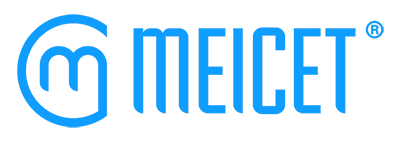In recent years, the integration of technology into healthcare and cosmetics has revolutionized the approach to skin health. Medical clinics, in particular, are increasingly utilizing tools such as face analysis and skin analyzers to provide better care for their patients. These advanced technologies allow for more accurate skin assessments, tailored treatment plans, and improved patient outcomes. In this article, we will explore the significant roles that face analysis and skin analyzers play in medical clinics.
1. **Enhanced Diagnostic Accuracy**
Face analysis and face analyze employ sophisticated imaging techniques and algorithms to evaluate various skin conditions. They can identify issues such as hyperpigmentation, acne, rosacea, and signs of aging, as well as assess skin hydration and oil levels. By providing a data-driven approach to skin diagnostics, these technologies enhance the accuracy of assessments compared to traditional visual examinations.
In a medical clinic setting, accurate diagnostics are crucial for effective treatment. For instance, recognizing the severity and type of acne through precise analysis can lead to more targeted interventions, whether they involve topical treatments, oral medications, or lifestyle recommendations. The use of face analysis ensures that patients receive the most appropriate care based on their unique skin conditions.
2. **Personalized Treatment Plans**
One of the standout benefits of face analyze and skin analyzers is the ability to create personalized treatment plans. After analyzing the patient’s skin, practitioners can design tailored regimens that address individual concerns. This customization enables clinics to offer treatments that are more likely to yield positive results, as they are specifically aligned with the patient’s skin type and conditions.
For example, a skin analyzer can indicate levels of sun damage or dryness, prompting the practitioner to recommend specific serums, moisturizers, or even dietary changes. This personalized approach not only improves treatment outcomes but also enhances patient satisfaction, as individuals can see more significant results aligned with their specific needs.
3. **Progress Tracking and Accountability**
Face analysis technology also allows for ongoing tracking of a patient’s skin condition over time. By taking regular assessments with a skin analyzer, practitioners can document improvements or identify any persistent issues. This longitudinal data is invaluable for monitoring the effectiveness of prescribed treatments and making necessary adjustments along the way.
Furthermore, progress tracking can motivate patients to adhere to their prescribed skincare routines. Seeing visual evidence of improvement fosters a sense of accountability and encourages individuals to maintain their treatment regimens, ultimately leading to better skin health outcomes.
4. **Education and Empowerment of Patients**
Education is an essential aspect of skincare, and face analysis technologies empower patients by providing them with knowledge about their skin. When patients understand the factors affecting their skin condition, they are more likely to take proactive steps in their skincare routines. Medical practitioners can use the data generated from skin analyzers to educate patients about the importance of sun protection, hydration, and the role of specific ingredients in skincare products.
Moreover, patients who are actively involved in their skin health journey often experience increased satisfaction and trust in their medical providers. As patients see the tangible connections between their skin condition and their lifestyle choices, they become more engaged in maintaining their skin health.
5. **Integration with Professional Care**
Face analysis and skin analyzers integrate seamlessly with the services offered in medical clinics. They complement dermatological treatments such as chemical peels, laser therapy, and microdermabrasion by providing comprehensive evaluations before and after procedures. This integration enhances the overall effectiveness of treatments, allowing clinics to offer a holistic approach to skincare.
For instance, prior to a chemical peel, a skin analyzer can reveal underlying concerns, ensuring that practitioners make informed decisions about the type and depth of the peel required. Post-treatment assessments can then gauge how the skin has responded, guiding future treatment plans.
6. **Research and Development**
In addition to clinical applications, face analysis and skin analyzers play a significant role in research and development within the field of dermatology. Medical clinics equipped with these technologies can contribute to clinical studies and trials, gaining insights into new products, treatment protocols, and emerging skin conditions.
By collecting data on patient responses to treatments and the efficacy of various products, clinics can contribute to the body of knowledge that informs dermatological practice. This research aspect further cements the reputation of clinics as leaders in skin health, attracting a broader patient base and fostering collaboration with product manufacturers and researchers.
7. **Streamlining Patient Workflow**
The implementation of face analysis and skin analyzers can also streamline patient workflows in medical clinics. These tools can facilitate quicker assessments, reducing the time needed for consultations without compromising quality. This efficiency allows practitioners to see more patients while providing excellent care, ultimately improving clinic productivity.
Additionally, the speed at which instant data is generated means that practitioners can make real-time decisions regarding treatment during consultations. This expedience enhances the overall patient experience, leading to increased satisfaction and loyalty.
Conclusion
Face analysis and skin analyzers have transformed how medical clinics approach skincare and dermatological health. By enhancing diagnostic accuracy, personalizing treatment plans, tracking progress, educating patients, and integrating seamlessly with clinical care, these technologies have become indispensable tools in modern dermatology.
For medical clinics striving to improve patient outcomes and satisfaction, investing in these technologies is a strategic decision that can yield significant returns. As the beauty and health industry continues to evolve, the importance of face analysis and skin analyzers will only grow, paving the way for innovative approaches to skin health in medical settings. With these advanced tools, medical clinics can ensure they are at the forefront of skincare and patient care, delivering results that matter.
Post time: Sep-14-2024









